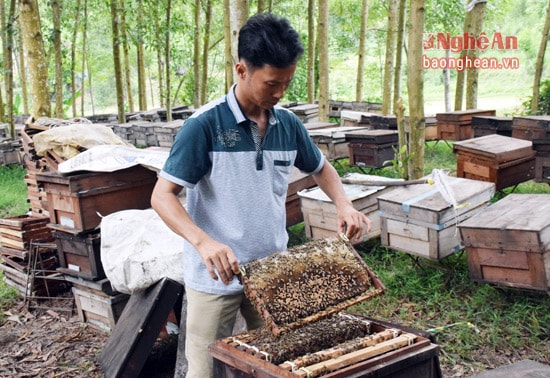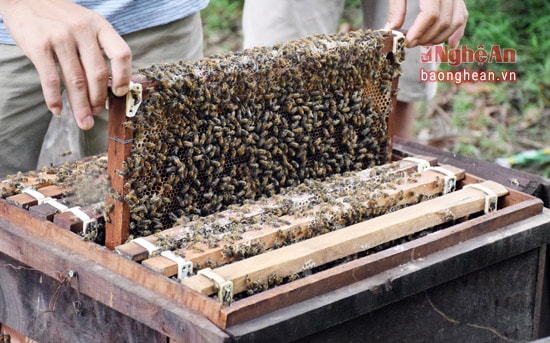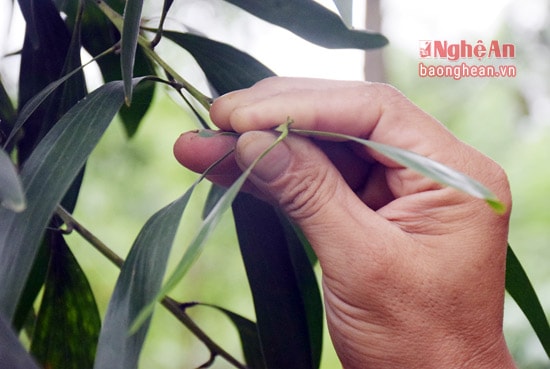Raising Italian bees in the cajuput forest earns 120 million VND/month
(Baonghean.vn) - From Dak Lak, Mr. Nguyen Hai Hung moved 300 Italian beehives to place under the cajuput forest in hamlet 11, Thanh Huong commune, Thanh Chuong district, earning 120 million VND per month from cajuput honey.
 |
| Mr. Nguyen Hai Hung takes care of bees. |
Traveling on Ho Chi Minh road, passing through hamlet 11, Thanh Huong commune, Thanh Chuong district, we stopped at Nguyen Hai Hung's bee farm, located under a green cajuput forest.
As a beekeeper for nearly 10 years, Mr. Hung said that Nghe An has many acacia and cajuput forests, which create a very abundant source of natural honey. From April to August every year is the time when acacia and cajuput leaves develop their leaves, and at the same time, they secrete drops of honey every day from the young buds.
 |
| Just 1 week the honeycomb is full of honey |
300 beehives, which are Italian bees, are placed in a corner of the cajuput forest, and the workers eat and sleep with the bees. Mr. Hung said: The job of beekeeping is itinerant beekeeping, moving from place to place, wherever there are flowering trees, we transport the bees. Therefore, from the season of lychee flowers in Bac Giang, longan flowers in Hung Yen, to the season of rubber and coffee flowers in the Central Highlands, he goes there to collect honey.
| Italian bees, also known as foreign honey bees or Italian honey bees, are a subspecies of the Apis mellifera honey bee. This is a honey bee subspecies that is commonly raised in the world with high honey production. Italian bees are recognized by Vietnam as an imported breed of livestock that is allowed to be produced and traded in Vietnam. |
 |
| Melaleuca trees secrete nectar from young leaf buds. |
In Nghe An, there are more than 145 thousand hectares of planted forests, mainly acacia and cajuput forests. The characteristic of these trees is that they secrete honey in the axils of young leaves and buds, so many itinerant beekeepers come here. Beekeepers say that cajuput honey is not as beautiful and fragrant as honey from other flowers, but it has its own flavor, which is favored by foreign customers.
Seasonal Italian beekeeping under the cajuput forest in Nghe An is bringing high efficiency. Every week, beekeepers harvest honey once, collecting about 1.5 tons of honey. With an average selling price of 20,000 VND/kg, each beekeeper earns more than 120 million VND per month.
Xuan Hoang
